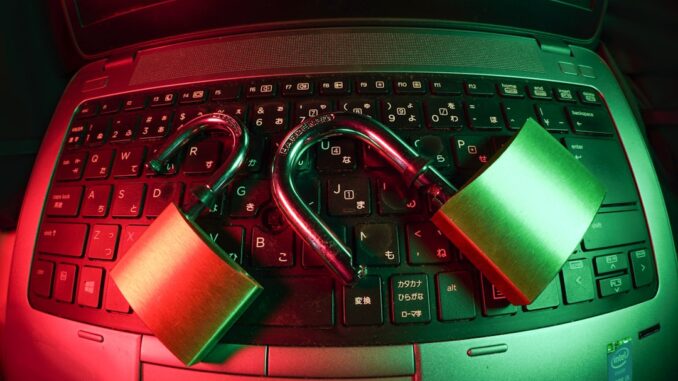
Summary
Pro-Iranian hacktivist group Cyber Fattah leaked data from the Saudi Games. The data included passports, IDs, IBANs, medical records, and credentials of IT staff and government officials. This attack is part of escalating cyber warfare between Iran and its adversaries, reflecting geopolitical tensions.
Secure your future with TrueNASs cutting-edge data protection features.
** Main Story**
Cyber Fattah Leaks Saudi Games Data in Alleged Iranian Operation
The pro-Iranian hacktivist group Cyber Fattah has leaked thousands of personal records connected to the Saudi Games, escalating the ongoing cyber conflict in the Middle East. This data breach, confirmed by cybersecurity firm Resecurity, exposes sensitive information, including passport and ID scans, International Bank Account Numbers (IBANs), medical certificates, and credentials belonging to IT staff and government officials. The incident underscores the increasing use of cyberattacks as a tool in geopolitical disputes.
The Breach and Its Implications
Cyber Fattah accessed the Saudi Games’ registration platform through its phpMyAdmin system, a common tool for managing databases. Exploiting vulnerabilities in this system, they exfiltrated sensitive data belonging to athletes, visitors, and officials associated with the Games. The timing of the attack, shortly after alleged US missile strikes on Iranian nuclear facilities and subsequent DDoS attacks on the social media platform Truth Social, suggests a retaliatory motive.
Geopolitical Context and Escalation
Resecurity analysts frame this attack as part of a broader Iranian information operation targeting regional rivals, including the US, Israel, and Saudi Arabia. This operation aims to advance anti-Western narratives and destabilize adversaries through cyberattacks and data breaches. The Saudi Games incident marks a shift from primarily anti-Israel operations to a broader focus encompassing Saudi Arabia and US interests.
The Growing Trend of Hacktivism
Cyber Fattah’s actions exemplify the escalating trend of hacktivism in the Middle East. Numerous hacktivist groups, often aligned with specific nations or ideologies, engage in cyber warfare to advance political agendas, spread propaganda, and disrupt their adversaries. This incident underscores the blurring lines between state-sponsored cyberattacks and independent hacktivist operations.
Retaliation and Counter-Attacks
The cyber landscape in the Middle East reflects a dynamic of attack and counter-attack. Following Cyber Fattah’s data leak, Israeli-linked groups retaliated with attacks on Iranian government websites and cryptocurrency exchanges, emphasizing the cyclical nature of these cyber conflicts. These exchanges demonstrate the increasing sophistication and intensity of cyber warfare in the region.
Cybersecurity Concerns and Mitigation Strategies
The Saudi Games breach highlights the vulnerability of major sporting events to cyberattacks. These events often involve complex IT infrastructure and the collection of large amounts of personal data, creating attractive targets for malicious actors. As geopolitical tensions rise, organizations must prioritize cybersecurity measures to protect sensitive data and prevent future breaches.
Key Takeaways:
- Implement robust cybersecurity practices: Organizations, especially those managing large events, must prioritize strong cybersecurity measures, including vulnerability patching, access control, and data encryption.
- Monitor for threats: Proactive threat intelligence and dark web monitoring can help organizations detect early signs of compromise and prevent data breaches.
- Prepare for DDoS attacks: Investing in infrastructure to withstand DDoS attacks is crucial for maintaining online services during politically motivated cyber campaigns.
- Educate staff: Training IT teams and personnel on phishing, credential theft, and other common attack vectors can reduce the risk of successful cyberattacks.
This incident serves as a stark reminder of the evolving threat landscape and the need for vigilance in the face of increasing cyber warfare. As geopolitical tensions continue to spill over into the digital realm, individuals and organizations must prioritize cybersecurity to protect sensitive information and mitigate the risks posed by malicious actors. The information in this article is based on publicly available information as of June 28, 2025, and may change as new details emerge.


The focus on cybersecurity for large events is crucial. Implementing multi-factor authentication and conducting regular security audits of databases could significantly reduce vulnerabilities and protect sensitive user data. What innovative security measures are being explored to combat these evolving threats?
Thanks for highlighting the importance of security for large events. Your point about multi-factor authentication is spot on! Beyond that, some are exploring AI-powered threat detection that learns and adapts to unusual activity in real time. It’s fascinating to see these advanced solutions emerge.
Editor: StorageTech.News
Thank you to our Sponsor Esdebe
The attack highlights the concerning trend of exploiting common database management tools like phpMyAdmin. Strengthening the security of these systems through proactive patching and stricter access controls is vital to prevent similar data breaches.
Great point! The focus on phpMyAdmin vulnerabilities is spot on. It’s not just about patching, but also about default configurations. Many leave default settings unchanged, making them low-hanging fruit. Stronger default configurations and user awareness training could make a huge difference. What are your thoughts?
Editor: StorageTech.News
Thank you to our Sponsor Esdebe
Given the geopolitical motivations behind this attack, what level of collaboration exists between private cybersecurity firms and government intelligence agencies to anticipate and mitigate these types of breaches?